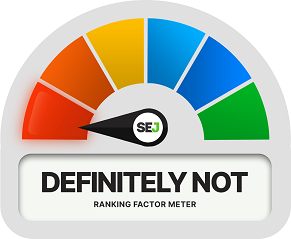Crawling is the first step on any page’s journey to a results page.
Search engines must discover your page before evaluating it and deciding where to place it in the results.
Crawling the web is a resource-intensive process. Search engines like Google draw from hundreds of billions of webpages, videos, images, products, documents, books, etc., to deliver query results.
So, they prioritize crawling efforts to conserve resources and the load on the websites they’re visiting.
There’s a limit on how much time crawlers can spend on you.
The amount of time that Google devotes to crawling a site is called the site’s crawl budget.
Any technical hiccups that interrupt Google’s ability to crawl your site are called crawl errors.
Smaller sites are not likely to be affected. When you hit over a few thousand URLs, it becomes essential to help Googlebot discover and prioritize the content to crawl and when and how much of the server resources to allocate.
Given it’s the starting point, you may wonder: Is how well Google can crawl my website a ranking factor?
[Deep Dive:] The Complete Guide To Google Ranking Factors
The Claim: Crawl Errors And Crawl Budget As Ranking Factors
Reducing crawl errors and improving the crawl budget are both major focuses of technical SEO, and for a good reason!
You invest tens or hundreds of thousands of dollars a year creating high-quality content, then hit publish, and all you can do is wait for your hard work to appear in search results.
The trouble is, if Google doesn’t crawl a page due to an error or limited crawl budget, the page can’t rank for anything at all.
For a page to appear in Google search results, it must first be crawled by Googlebot.
That is why some marketers consider crawl budget a ranking factor.
Let’s see if there is any evidence to support that claim.
The Evidence: Crawl Errors And Crawl Budget As Ranking Factors
Understanding how a page gets from a website to the search engine result page (SERP) is essential to determine if crawl budget could be a ranking factor.
The process involves three steps: crawling, indexing, and ranking.
Read about the intricacies of the process in SEJ’s ebook, “How Search Engines Work.”
Crawl budget and crawl errors fall under “crawling”; bots follow links to discover pages.
Indexing is analyzing a page and storing it in a catalog for easy retrieval.
After a page has been crawled and indexed, it is eligible to display in search results.
Ranking essentially lists the most relevant webpage at the top of search results, followed by the other pages, based on how well Google thinks the page answers the query.
The ranking stage includes most of the analysis performed by Google’s algorithms. To be considered a ranking factor, something needs to be given weight during the ranking stage.
While crawling is required for ranking once met, this prerequisite is not weighted during ranking.
Just in case that doesn’t fully settle the issue for you:
Google addresses whether or not crawling is a ranking factor directly in their “Top questions” section of the Google Search Central blog.
 Screenshot from Google Search Central, June 2022
Screenshot from Google Search Central, June 2022Google’s documentation reassures readers that while crawling is necessary for being in search results, it is not a ranking factor.
[Discover:] More Google Ranking Factor Insights
Our Verdict: Crawl Errors And Crawl Budget Are Not Ranking Factors

Google determines rankings by many factors. However, crawl errors and crawl budgets are not one of them.
Think of crawling as the entry point into Google’s search results.
Search engines need to be able to crawl your website to index your pages. Indexing is required for ranking. But, an increased crawl budget is not responsible for better positions in search results.
Featured Image: Paulo Bobita/Search Engine Journal
 seolounge
seolounge
![Ranking Factors: Fact Or Fiction? Let’s Bust Some Myths! [Ebook]](https://cdn.searchenginejournal.com/wp-content/uploads/2022/08/rf-ebook-download-banner-62e8c6126ffe8-sej.jpg)